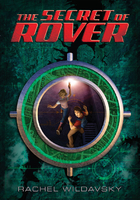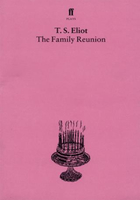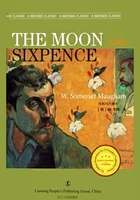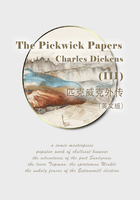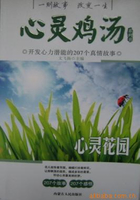BEGINNING IN THE EARLY 1970s, my aunt Jane spent every summer with her three children at The Red House, taking responsibility for opening it every June and closing it down every September, and always managing to dismiss its substantial shortcomings in much the same way she managed to ignore those of the family that she had married into. My aunt Carol came, too, from Brooklyn, with her two boys in tow, but she loved it less and was burdened with allergies and a fear of the dogs and horses that my uncle Mike kept at his nearby farm. Carol seemed to be there because she had to be, to escape the city and a house with no air-conditioning, not because she really wanted to be.
The house was already old and crooked by the time my grandfather owned it. The barn that had stood next to it for three-quarters of a century was finally torn down when I was still in grade school because it had become a haven for wasp nests and unsafe clubhouses. Without anyone living and cooking in it and keeping the lawn short, the house would have been swallowed up by the ground it sat on and the woods around it in less than a decade. But, for twenty-five years, The Red House had Jane to come every spring and sweep it out, and to put clean sheets on its terrible old, stained mattresses and pots of geraniums in front of its decomposing foundation, and to cook big aluminum pots full of corn on the cob and spaghetti on its cheap electric stove, and to convince us, each in our own way, that it was a house and a place worth loving, that even its most hazardous issues were nothing more than charming life-in-the-country quirks.
The Red House was a simple farmhouse with a stone foundation and a basement so creepy that you had to speed up your steps when you walked past the door that led there, with its weak little latch that always looked as though something had been pushing against it from the other side. Its attic housed a healthy bat population, its foundation seemed to be made mostly of mice, and its attached woodshed appeared to be at least the weekend home to a family of overweight, slow-moving porcupines who had eaten all of the firewood long ago and had started to chew on the walls and floors. If you complained about these things to Jane, she would turn up her little radio, which was always tuned to the BBC station out of Montreal. When the radio wasn't on, Jane would hum to herself, short little classical tunes. If you went to her room, the door to which was always open, and complained that it was too hot at night and that you could not fall asleep, she would say, "There is a wonderful, cool breeze coming through my window just now, so if you run back to your bed, you'll be there in time to feel it come through your room and out your window." You would believe her and run back to bed, put at ease, and then you would fall asleep waiting for that breeze, which you were never quite sure if you had felt or not.
The bugs would get so bad in June and early July that you would sometimes need to run from the car to the front door, and the clover that choked out the grass in the acres of lawn around the house and the thickets of berry bushes at its edges drew more bees and wasps and hornets than you could easily avoid. Jane kept a bowl of baking soda and water on the kitchen table, which quickly drew out the sting of stepping on a bee with your bare foot, and she hung awful, ugly flypapers in the kitchen to catch the more obnoxious blackflies that found their way in. Jane loved to hike and pick berries in the woods around The Red House, where the bugs would be especially hungry and thick, so she fashioned herself a new hat from an old Chinese straw hat and some beekeeper's netting. She would often be wearing this hat, along with a pale blue oxford shirt, her tennis shorts, a red bandana tied over her hair, and worn tennis shoes, when we pulled up onto the lawn. She would greet us with a wave, one hand on a hip, the other high above her head, with just her fingertips wiggling, all on tiptoe, and then skip off again. My mother would shake her head and mutter, "What is she on?"
The house's steep staircase was deadly, and each of us remembers falling down it at least once. Its handrail was only helpful for the first half of the descent, because it was actually a broomstick that wasn't quite long enough to cover the span of stairs, and because the person who had attached it to the wall was clever enough to have threaded a wooden spool onto the nail between the stick and the wall at one end, but had not done so at the other, so if you used it without looking, your fingers would get stuck before you reached the bottom of the stairs, which would be confusing—not a helpful state of mind to be in when you are two-thirds of your way down a very steep and crooked staircase. We all learned to walk down sideways, hopping from foot to foot, ignoring and hating the rail, but we rarely remembered to warn guests, who were routinely spit out at the bottom of the staircase with a crash, betrayed looks on their faces. Jane would come down the stairs with a quiet little series of hops, as though timed to music, her fingertips trailing along the top of the broomstick but never wrapped around it, and land delicately in the hall. I watched her do it once, from above, to see if I could copy it. I was terrified of the stairs, having crashed down them regularly since I was a baby. I noticed for the first time that she was smaller than most of the adults in our family, which was full of tall people, and more suited to a house like this, with its low doorways and ceilings.
My sister and I looked forward to those weeks when Jane and her children were at The Red House, with their spaghetti dinners and clean sheets. Our cousins' world seemed a stable, pretty place where there was always food in the cupboards and gas in the car, and since those were the things that we wished for, we also wished that we were a part of that world.
When Jane talked about her own childhood, it was with what seemed to be a happy nostalgia. She would tell us about the car her father had, with its bumper seat in the back, and about being allowed to ride in it on family outings. When the very first J. Crew catalog appeared on the kitchen table at The Red House, she pointed to the group of preppy youngsters around an evening bonfire on a New England beach on its cover and announced with a wistful drama and a hand clap, "That, children, that was me, those were my summer evenings, and oh, how I want to have a bonfire!" And so bonfire we did. We sat high on the top of the mountain at the end of every summer, under a thick ocean of stars with crickets all around us, with blankets crushing the tall grasses and marshmallows on sticks and songs sung in rounds. Below us, The Red House was lit from within like a lantern, warm light spilling out of its front door and windows onto the grass around it, looking like the perfect summerhouse on the perfect summer evening, just as Jane saw it, I'm sure. I loved bonfires because the light that came from them lit only the faces closest to the fire, and I could disappear slightly from sight, crawling off the blankets and into the tall grass, where I could see my family from a distance, where they looked more perfect than they were, almost like the people on the cover of the J. Crew catalog. I was certain that I did not belong, that my sister and I and our mother were not the sort of family that were found sitting around bonfires on the covers of magazines, but then I would look up at the stars, and as soon as I would begin to try to grasp the incomprehensible scale of what I was seeing, I would feel my own self and my worries grow smaller and smaller, until they were nearly gone.
Jane would often be carting all of us—her three children plus my sister and me and our two other cousins, all seven of us within just three or four years of each other—in her big Malibu station wagon, coming and going from swimming or town, and she would always be trying to organize us into a singing troupe. She would go after the most willing of us first, her youngest daughter, Rachel, and my sister and me, getting us to join her in a verse of "Row, Row, Row Your Boat." Then finally Martha would be coerced into a verse, sitting always in the front passenger seat, and then just when we all thought we were singing the final verse, Jane would cheerfully command, "Now in a round!" and point to one of us. Martha would be beside herself with embarrassment and yell at her to stop. We would see her blond head fall back and hear her shout, "Mom, nooo!" and then Jane would say, "Oh, Martha, you are no fun at all. Why won't you let your mother sing?" And then she would start all over again. My sister and I loved it. Our mother was a far more distracted chauffeur, needing all of her focus to speed and smoke simultaneously, always with the gas tank needle bouncing up and down against the red E line, and we were usually too busy hanging on to something, readying ourselves for the next curve in the road, to care. Jane referred to being in a car with my mother, behind her back, as Mr. Toad's Wild Ride, while my mother compared being in a car with Jane, behind her back, to being "trapped in a fucking padded wagon with a fucking Trapp Family lunatic." They were surprisingly close. Jane was able to love my mother for the same reasons that she was able to love all of us, and the house, because she refused to acknowledge the things about us that were broken or unsafe or beyond fixing. My mother would complain to Jane about the way she was treated by her other family members and by my father, and Jane would say things like, "Oh, Tess, when will you just bury the hatchet?" or "Well, yes, Tess, it's difficult to be the only sister, isn't it?" and listen. Jane never complained about her own life, or other people, at least not in front of me.
Jane and my mother would sit for hours on the deck that hung off the back of The Red House while we played in the meadow and lawn around it. On one such day, Martha and I pulled apart a rotted picnic table and surveyed the pieces. We wanted to make it into a raft and to take it fishing. We approached our mothers from the lawn for permission, shouting up at their perch on the porch, where they sat smoking and drinking wine. We and the raft, when we were finished building it, would also be needing a ride to Belvedere Bog, we explained, which was only four miles away, where we planned to spend the night so that we could be up early, which was when we understood fish to be hungry. We watched them whisper back and forth for a moment and then Jane gave us their answer. "All right, but on one condition. You must disguise yourselves to look like little old men, so that the actual fishermen don't try to make off with you." We agreed and spent an hour in the bathroom, in a serious mood as though our lives and chastity depended on it, brushing mascara onto our upper lips. It was a thrilling thing, as a child, to feel as though your own small fantasy was being encouraged by a mother, your own or someone else 's.
Jane also allowed her children to ride on the back bumper of my mother's car when we were driving on the dirt roads, which was not at all safe, and allowed them to go flying with us when Tommy Phillipson, a dashing family friend (and part-time drug smuggler, it turned out), came to town with his little plane. Sometimes he let my mother or my uncle Mike take control, with all of us in the backseat, at which point I would usually throw up. We knew that many of these things were not safe, but my mother and Jane both seemed to want them for us, because they were also adventures. They both also happily ignored the fact that we went, literally, all summer without showering, and had head lice, all of us, for most of the 1980s. "Just like when we were at school!" Jane would say to my mother, who had spent her childhood in boarding schools, with nobody to tell her to take a shower or change her clothes. But Jane never said where she had gone to school.
In all of those summers, there was just one moment when I think that, just for a moment, I saw something else through a tiny crack. Jane and my mother and I had been in the kitchen at The Red House; I was perhaps eight or nine years old. My mother was dating a man who lived an hour or so away, a younger man I didn't know very well, whose home I had never been to. My mother and Jane had been drinking wine and smoking cigarettes all afternoon, and my mother had just announced that she would be driving, with my sister and me, to see this man. We might be spending the night there, but there was no plan apart from getting into the car in the clothes on our backs, with only possibly enough gas to make it home, with our mother, who seemed a little drunk. I told her that I didn't want to go, that I wanted to go home, or stay at The Red House. "Tough shit," she said, and pushed open the screen door with her shoulder as she lit a cigarette. "I'm having a smoke and then we are leaving."
I ran into the bathroom and sat on the side of the tub, trying to hold back tears, my stomach and my chest pounding and aching. Jane opened the door and quietly sat next to me, her hand on my back. At first she said what she always said, trying to get me to smile, but I was past the point of needing just a cheerful chin-up. What I needed, at that moment, was for someone, just once, to tell me that I was right, that even though I was a child, I was right, that this thing that felt so unfair was, indeed, unfair, that what was happening to me—the mother who was barely holding on, drinking more and more, dragging me along on her poorly planned adventures—wasn't OK. And Jane, for the first and only time in my life, did that. She pulled me up onto her lap and held me as tightly as she could and told me that she loved me, and then, over and over again, her voice cracking, she said just one thing. "I know," she said. "I know, I know, I know."
When I reached the age when I started to question anything and everything about my family and my place in it and did not want to take responsibility for my life, when I felt that I was still at a deficit for not being treated or taught or loved appropriately, and therefore was owed something, like an apology (or someone paying my rent for me; either would do), I pointed the blame at the members of my family who had seemed so content to ignore my circumstances, including Jane. Her constant state of happy delusion, I had decided, represented my mother's family's unwillingness to help us, me and my sister and my mother, when we were so clearly without so much and they seemed to have so much of everything, and so little to worry about. Why did they not worry about us?
It was during this same span of years that I pulled away from my mother and her family, and while I didn't know it at the time, my mother turned to Jane, who protected her and supported her with her unending optimism. For a short time my mother even lived near Jane in Virginia, and turned to her for emotional and financial support more than once. I was as far away as I could be by then, in California, but called Jane at some point to ask her if she knew where my mother was and how she was doing. I hadn't spoken to my mother for a long time, and I wanted very much to have a real conversation about her situation, her life, her well-being, and, I think, I probably wanted sympathy, for who and what my mother was, for what I did not have. I asked Jane, knowing that the truth was horrible. There was a silence, and for an instant I thought I would see it again, after all these years, that crack through which I would see that Jane saw us all for what we were, that we would now talk about what could be done for my mother, but then I heard her take a long inhale and then, with a chilling cheerfulness, she said, "The thing about your mother, Tupy"—she was calling me by my childhood nickname, as if to remind me that we were still safely in the land of illusion—"is that she always lands on her feet."
Jane and I spoke again the summer before I turned twenty-eight. I was still angry, still bitter, but also becoming self-sufficient, finally. I had started my own business and was, at least from a distant perspective, a functioning, successful young adult. Jane and I and her husband, my uncle, were alone together at The Red House. She seemed tired to me, and while the house felt as though she was caring for it and loving it more than ever, her energy and optimism seemed to be waning. Her children were all away, their own lives no longer allowing for long summers in Vermont. Over morning coffee she looked up at me, and with a smile and that warbling, dramatic voice coming back for just that instant, and with a brief lift of her arm, she said, "I just hate your mother for the fact that she did absolutely everything wrong, and yet you turned out perfectly!" It was meant to be funny, and actually, it was. It was also meant as a blessing, a happy proclamation, and while we both knew it wasn't totally true, it struck me that I had a better shot at making it true if someone already believed that it was. A few fleeting years later, Jane was diagnosed with cancer. Everyone seemed optimistic at first, but she died the following summer, just a few days before she had planned what I think she believed would be her last summer in Vermont.
Without Jane to defend it, discussions about The Red House seemed suddenly to be about what was wrong with it. It was falling apart, unsafe, too far away. In the span of two years, Jane was gone, and both of my grandparents, and then the house was put up for sale by my mother and uncles, who now owned it. It was something that most of my generation didn't want to have happen, but for Martha and Rachel it was especially sad, because the house had been Jane's place, and because we had scattered her ashes there. And then Martha was married, and then she was pregnant, and then one spring weekend we were all in her house—Rachel, Martha, my aunt Carol, and me—to attend her baby shower, which was being thrown by a group of Jane's closest and oldest friends at a stately suburban home. I knew that Martha was appreciative but also dreading this. I didn't think anybody at the party knew me other than my cousins and aunt, but I was wrong. A slight woman, about Jane's age, came up to me and introduced herself. "You are Tupy, aren't you? One of the twins?" I nodded. "Jane told me so much about you. We walked together, you see, for exercise, nearly every week. I have been hearing about you and your sister and your mother for so many years. It's remarkable to meet you." She was studying my face now, with wide eyes, as though she wasn't sure she could trust me. I wondered for just an instant what Jane could have been telling her, how she had managed to include us in her glowing reports of The Red House. "She was always so concerned about you both, she would worry so much, and tell me about everything that was happening to both of you. She spent so much time worrying, but what could be done?" I was too stunned to respond. It was true, I saw now. What could have been done? Other than loving us, other than choosing to see what we had instead of what we didn't have, other than forcing us to sing out loud and marching us up grassy hillsides to sit under the stars, other than, just once, putting her arms around us and telling us that she understood, what else could she have done?
When Jane was gone and her spell was finally broken, it became clear that her life was more ordinary, and far less perfect than what we had thought. She had never been one to talk about the negative, to waste time worrying over the unchangeable past, to dwell on the bitter or the unfair. Because of this we had thought that her life was perfect and bright, without sadness or pain, but of course that isn't true of anyone's life. And I realized that she had told me everything, she told me her secret that afternoon in The Red House, when she held me more tightly than my own mother ever had and said those two words over and over again: "I know, I know, I know."
Most importantly, Jane's happiness, and her love for her children, and her love for The Red House, and the gift that she gave my family in the form of that place through her eyes and those summers together had been very real and more profound than we could have understood when we were young. Jane's childhood had probably not even included bonfires, but because of her, mine did.
I think of Jane every time a J. Crew catalog arrives in my mailbox, which seems like every other week. There are fewer bonfires on the cover now, but just as many fresh-faced, optimistic young people who seem to be living perfect lives draped in plaid and glee. I don't resent them the way I did as a kid or look at them and wish that I had what they had. I know now that it's possible to make a bonfire at the top of a dark mountain, or to choose to live your life as a series of beautiful moments, born out of your own imagination rather than through inheritance, or legacy, or status. I know that happy moments make a happy family, and that it's not the other way around. I imagine that those catalog-cover faces are only happy in that moment, that when they get home from Aspen or Montauk or Stowe they will learn that their parents are divorcing, that they are moving far away, that their father has been in love with someone other than their mother for twenty years, that someone they love is sick and will not be getting better. But it doesn't mean they can't have a bonfire, or sing a camp song in a round, or live in some way, in a small moment, in the faint flickering light of a fire that hides more than it reveals, as though nothing in the world deserves worry.

